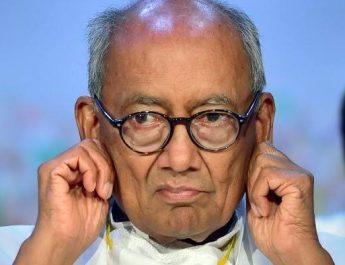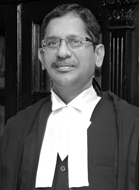From Our Bureau
NEW DELHI: In a 4-1 ruling, the 5-judge Constitution Bench headed by Justice S A Nazeer on Tuesday held that a hate speech by a minister cannot vicariously attributed to the government even by the means of the collective responsibility.
The Bench was ruling on Kaushal Kishor v the State of Uttar Pradesh, that relates to the Bulandshahar rape incident of 2016, in which the then Minister of the State of Uttar Pradesh and Samajwadi Party leader Azam Khan termed the incident a ‘political conspiracy and nothing else.’
The survivors then filed a writ petition before the Apex Court seeking action against Khan. While directing him to submit an unconditional apology, which he did, the Court also noted that the case raises serious concerns regarding state obligation and freedom of speech and expression. Several questions were framed on the matter that are answered in the majority judgment.
Noting that restrictions under Article 19(2) are exhaustive, the judgment pronounced by Justice V Ramasubramanium said: “Fundamental under Article 19(1) can be exercised against other instrumentalities other than the State.” Other judges endorsing the majority ruling were Justices Nazeer, B R Gavai and A S Bopanna.
Justice BV Nagarathna dissents from majority to hold that statements made by a Minister, which are traceable to affairs of govt or to protect the govt, are vicariously attributable to the Govt and if they are disparaging, the Govt is vicariously liable. On Monday also, she had dissented to the majority judgment holding as valid demonetisation in 2016 by the Modi government.
She added that hate speech disfigures the foundational values of society while creating and unequal ground whilst attacking citizens belong to varied backgrounds especially “in a country like us “Bharat.”
The judgement followed a question of whether restrictions could be imposed on public functionary’s right to freedom of speech and expression.
Furthermore, Justice Nagarathna added that hate speech targets the root of equality and fraternity and said to enable a check on this fundamental duties can be used to monitor disparaging speeches and promoting harmony among citizens.
“Parliament may enact a law against hate speeches disparaging remarks against fellow citizens. It is for political parties to control their members from crossing limits for free speech. Citizens can approach the court for hate speech by filing criminal or civil cases,” Justice Nagarathana added.
Reading out the majority judgment, Justice Ramasubramanian said: “Grounds mentioned in Article 19(2) for restricting free speech are exhaustive. Additional restrictions not found in 19(2) cannot be imposed on the exercise of right under 19(1)(a).” He went on to state: “Justice Ramasubramanian :”A mere statement made by Minister inconsistent with the rights of the citizens may not be actionable as a constitutional tort. But if it leads to omission or commission of offence by a public official then it is a constitutional tort.
Justice Nagarathna disagreed. She said: “Hate speech strikes at the foundational values of equality, liberty and fraternity. For a country like ours which is a Parliamentary democracy, freedom of speech is a necessary right for ensuring a healthy democracy and the citizens are enlightened about rights and duties.”
She affirmed: “Hate speech strikes at the foundational values by making the society unequal and also attacks fraternity of citizens from diverse backgrounds especially in a multicultural country like us that is Bharat. It shall be the duty of every Indian to uphold the dignity of every individual irrespective of religion, caste etc and also uphold the dignity of women.”
Justice Nagarathna, however, agrees with Justice Ramasubramanian on the point that greater restriction cannot be imposed on free speech, in addition to grounds under Article 19(2).
Arguing the case, she said: “A Minister may make statements in personal or official capacity. It is a no-brainer that in former category that there is no vicarious liability to the government. If in latter category, if such statements are disparaging, such can be vicariously attributable to the government.” She said the government is liable of the minister’s statements are traceable to affairs of the government or to protect the government as in the instant case.”
“It is for the party to control the speeches made by their ministers which can be done by forming a code of conduct. Any citizen who feels attacked by such speeches made or hate speech by public functionary etc can approach court for civil remedies,” Justice Nagarathna added.





